Are you anticipating the moment that you won’t have to use all your income to pay off debt and begin accumulating wealth instead? Is there even a chance that it may happen? If you have the correct approach, we are here to inform you that it is attainable.
Sure, you must work harder and be more determined, but it’s well worth it. Just focus on the day you don’t have to use all your hard-earned money to pay debt. When this day comes, no more financial penalties will be eating away at your pocket.
Even though common advice like tossing your credit cards and brewing your own home coffee will help you save money in the long run, we’ve got more creative strategies for how to aggressively pay off debt that you’ll find helpful for speeding up your debt-free journey.
Let’s go for it!
1. Use the Debt Snowball
Remember, you need a backup plan before using the debt snowball to rid yourself of debt. The first step is to set aside $1,000 towards your emergency fund. Under no circumstance will you touch this money if it’s not an emergency!
Having set aside some money to cover unexpected expenses successfully, you may commit to repaying the rest of your debt (excluding your mortgage) with the debt snowball method.
This is how it goes:
- Write down your debts, going from the lowest to the largest amount, according to interest rates.
- Start repaying the bare minimum on every debt but focus on clearing the smallest one with everything you’ve got.
- After you’ve paid off your smallest loan, use the same approach to attack the next-smallest debt.
- Eliminating debt typically lasts about 18 to 24 months, so keep at it this way.
Although this will need hard work, it will be worthwhile. Just keep your eyes on your financial goals for the motivation you need.
Now that you know how to start paying off your debt, the remaining tips in this list will help accelerate your steps toward zero debt.
2. Limit Your Spending to the Absolute Minimum
Finding additional funds to cover your debts directly is critical to quickly decreasing financial liabilities. Paying down debt requires a sober assessment of one’s financial situation to identify areas of discretionary expenditure that can be reduced. Should you make cuts even for a few months, the money you save can go a long way toward reducing your debt.
3. Explore a Debt Consolidation Loan
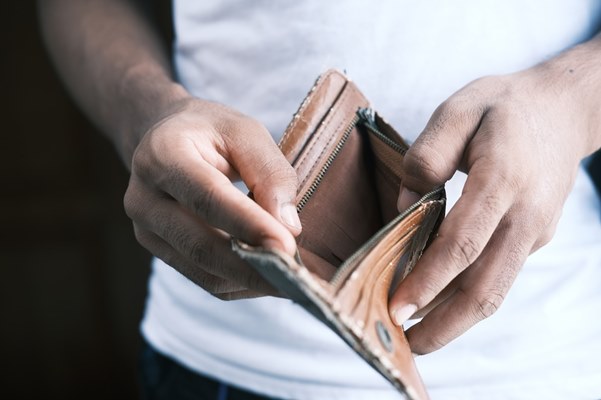
Credit card debt consolidated with a low-interest personal loan makes financial sense. However, you’ll need a solid income and credit history to save money by going this route.
Another good thing about a debt consolidation loan is that it has a set length of time for repayments. Suppose the loan term is three years; you will have paid it off and no longer have any outstanding debt after that time.
4. Examine Offer for Balance Transfers
A few credit card companies offer 0% APRs on balance transfers, provided you pay off the amount within a particular time frame. Think about these options if you want to transfer high-interest credit card debt. You could pay off the debt much faster if interest didn’t add up. However, be cautious when reviewing the fine print to verify that there will be no additional costs associated with the transfer you have missed. Hence, a balance transfer can be a lifesaver if you’re having trouble getting ahead of your credit card debt and want to pay it off quickly.
5. Consider Renegotiating With your Creditors
If your financial burden has gotten out of hand, it might be time to initiate a renegotiation with your creditors. Nevertheless, it’s essential to exercise caution when considering settlement offers from creditors, even if they could save you money on interest and fees.
6. Consider Consignment Shopping
Children outgrow their clothing at an alarming speed. And let’s be honest; it’s no use racking up credit card debt to keep up with your toddler’s ever-evolving style at age two. Thrifting stores typically stock slightly used items that are in excellent shape and are available for purchase.
And for those who prefer to shop online, there are several websites, such as thredUP and Swap, where you can find gently used items for adults and children at a fraction of the original price.
7. Save Your Money on Hobbies
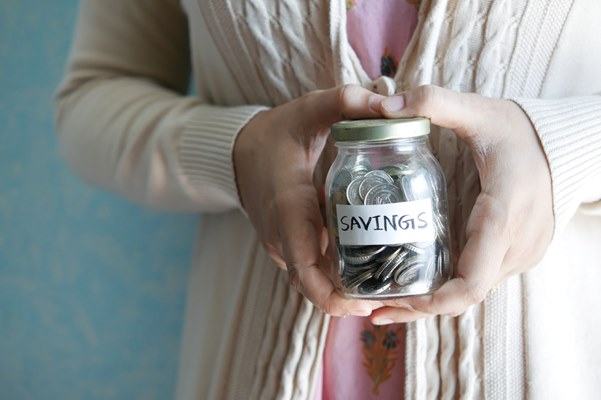
Can you afford to put $200 into golf every month? Or some rare wines to add to your cellar? For that tailoring project you’ve begun and abandoned many times, decided to use a designer fabric?
Put those expensive pleasures on pause for a bit and save money for debt-free living; your hobbies won’t mind waiting.
8. Avoid Repayment Penalties
It’s relatively easy to check your repayment penalties, but you won’t likely find it until the debt is a large sum, like a mortgage or vehicle loan. Sometimes, you must pay a fee if you repay your bill early.
Therefore, before making a prepayment, you should consult your loan agreement to determine if it has any prepayment penalties.
Even if you must pay a charge for paying off a debt early, that isn’t a reason to delay its payment. If the prepayment penalty is low enough, it could save you money to settle the loan early.
For instance, if the total interest incurred on a loan is $6,000 during its term, yet it has a $1,500 prepayment penalty, paying off the loan sooner remains more cost-effective than waiting.
9. Combine High-interest Debt With a HELOC
HELOCs can help borrowers with significant home equity consolidate high-interest debt like credit cards.
HELOCs usually have a two-part structure, with a draw period of 10 years and a payback period of 20 years.
Together, these two sections add up to a 30-year duration. Borrowers are free to take as much or as little out of their accounts as they need throughout the draw period; however, after the repayment term starts, they must start paying back both the interest and principal on their loan.
Loan amounts for HELOCs vary from borrower to borrower because your home’s equity determines them.
Pros and cons
- For homeowners who have a considerable amount of equity in their house, home equity lines of credit (HELOCs) are typically one of the most cost-effective types of loans.
- Failure to repay a home equity line of credit might result in foreclosure.
- You might require excellent credit, a low debt-to-income ratio, and significant home equity to be eligible.
10. Always Pay More Than Your Card Minimum
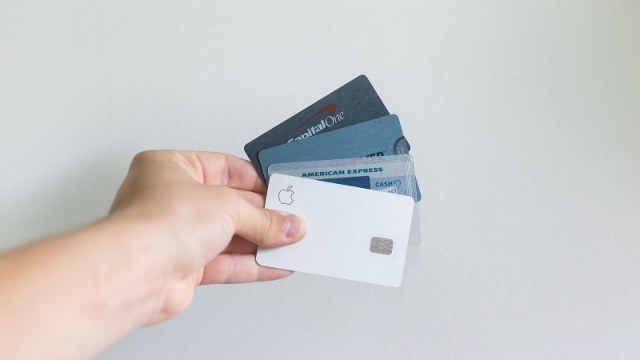
In a perfect world, each person’s monthly credit card bill would be paid in full, eliminating the need to worry about accruing interest charges. Sadly, only approximately half of cardholders can pull this off.
Even if you cannot pay the total sum on your monthly statement, it is in your best interest to make a payment greater than the required minimum. The interest fees generally won’t be too bad when you only bear a debt for a short time.
Pros and Cons
- Making only the minimum monthly payment could end you up in a debt spiral for years.
- Most credit card companies don’t charge extra fees for payments made during a billing session.
- It’s almost impossible to pay when you also have to cover other expenses.
11. Start Working Two Jobs
Many people take on a second job or work extra shifts regularly to reduce their financial obligations and make extra money. While not everyone will succeed with this option, it allows for eliminating debt in a relatively short period.
To succeed, you must pay every extra dollar you make to pay down your debt. However, the additional shifts or hours don’t have to become a permanent part of your schedule. Consider cutting back once all your debts are off the table.
Profiting from a pastime or a set of skills you already possess is another option for bringing in extra cash for your debt repayment efforts. For instance, if you’re a decent writer, you might freelance articles for various online and offline publications.
12. Talk to a Credit Counselor— It’s Free

Talking to a credit counselor should be part of your steps if you have debt and are having difficulty making payments. Check out the programs that can help you pay off your bills. A trustworthy credit counselor will lay out all your alternatives and assist you in selecting the one which best fits your present situation.
Many individuals are happy they took the initiative to learn about the debt repayment options offered by non-profit credit counseling groups. The best part, credit counseling provided by non-profit organizations is free of charge and confidential.
Wrapping Up
You can quickly get out of debt by taking any available options. However, if you have a solid plan, it will be easy to make any headway, and it will be far more challenging to prevent yourself from falling back into debt in the future.
Fortunately, getting out of debt and staying out of debt is possible with the help of these sure steps and tips outlined above. Thousands of people have gained financial independence and the confidence to pursue their financial goals with these simple approaches. And you can do it too!
But remember, getting to zero debt will be challenging. But understand that the work you do now will pay off in the long run.

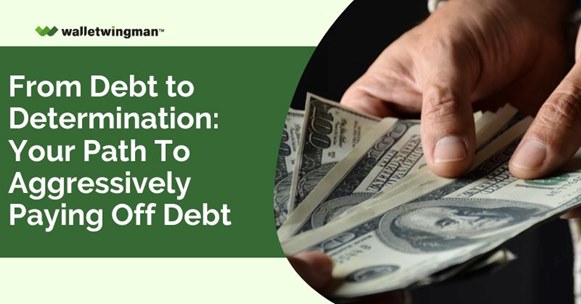
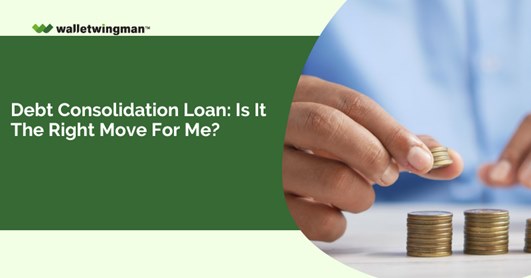 Debt Consolidation Loan: Is It the Right Move for Me?
Debt Consolidation Loan: Is It the Right Move for Me? 